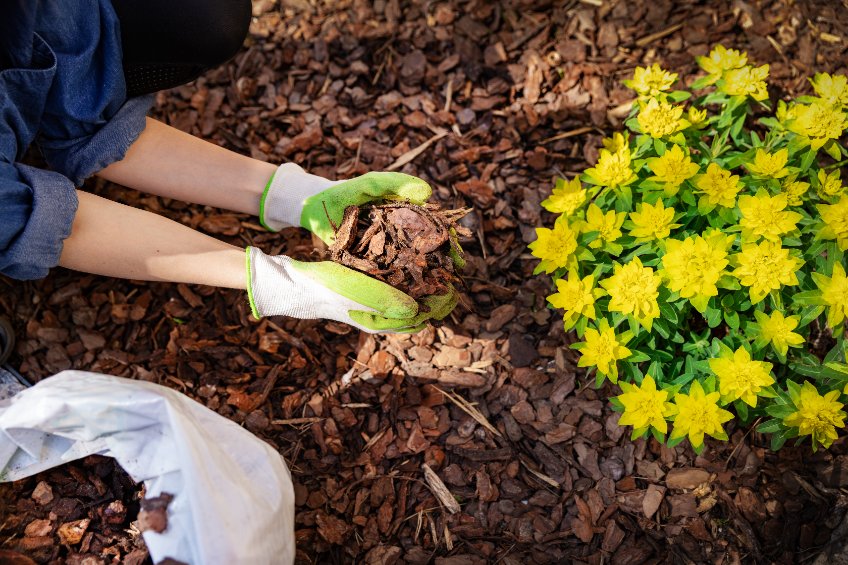


We know we talk about mulch a lot, but it’s for a good reason. Mulch really is a miracle product and can be used for many reasons, from practical to cosmetic. If you are looking for the best little helper for your garden, mulch is probably the answer.
Mulch is great for your plants because it reduces water evaporation while also enhancing water absorption. It improves the quality of your soil as it breaks down and enriches the soil with its nutrients. Mulch also slows the growth of weeds, is inexpensive, and looks amazing. Bark and wood chips are the most common types of mulch we see throughout the area, and the larger chunks will usually last longer because they decompose slower than shredded-wood or small bark mulch. Adding mulch creates a flawless, finished look to a yard, but it also reduces stress because you won’t have as much upkeep with pulling weeds. We suggest pulling weeds before you lay the mulch and get enough to cover about two to four inches in depth to help keep weeds at bay.
When choosing mulch products, organic mulches are great options because as they decompose and break down, they continue to improve the soil underneath. The nutrients from the bark will slowly seep into the soil over the years. It is also a little blanket for your plant’s roots and protects them from extreme hot and cold temperature fluctuations, saving you money on replacing dead plants.
Landscape fabric underneath mulch is popular choice, but there are some reasons to avoid it. If you want the full benefit of the nutrients from organic mulch, fabric may not be a great idea. Fabric is usually better suited under rocks or stones. If you have trees or large shrubs nearby, the fabric will minimize the water and nutrients going to their extended roots. If you do opt for landscape fabric, be choosy of where you put it and make sure it allows water and air to pass through.
Although mulch minimizes maintenance, it does not eliminate it. You’ll still need to weed a little here and there, but not as much as without mulch. You’ll also need to replace wood mulch every few years because it will break down over time and it will lose its fresh color as the weather affects it.
Mulch is a versatile project that can be distributed anywhere (but not everywhere) on your property. There are still some conditions to be aware of. Sometimes organic mulches spread in damp areas can retain too much moisture for plants, creating a haven for slugs, fungus, and certain pests. If you have a consistently wet spot, mulch may not be great for that area. It’s good to discuss recommendations from experts to make sure you’re applying mulch to good areas.
Mulch adds color, texture, and a clean finish to any yard. Whether you are a novice or an ardent gardener, you will likely appreciate the benefits of mulch somewhere in your yard or garden.